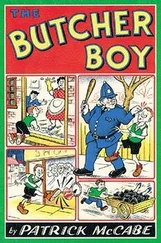“Great outfit, John,” she smiled. “You look like a Cuban spy.” But she was thinking something else; he was perfect. He looked like another version of what he was—a middle-aged man from somewhere in the East. A man who had spent most of his years working too hard and not getting enough out of it to soften the signs of wear—but who wasn’t at the office today and meant to make the most of it. Maybe he was here for a convention; maybe he’d come with the little woman and managed to slip away from her for a few hours to look for some action at the tables.
But the voice was Brayer of Justice. “What have you got so far?” he said.
“Still very little to go on,” she answered. “Edgar Fieldston is out of town checking out some kind of investment. The secretary pretends she can’t tell anyone where he is but she’s probably lying and doesn’t know herself. After that I went to the police station to see what they had. It wasn’t much either.”
“You didn’t ask them about FGE, did you?” Brayer snapped.
“No,” said Elizabeth. “But it was just because there didn’t seem to be any reason to. I figured you’d want to know about DiGiorgio—”
“Right,” said Brayer. “What’s new on that?”
“The place was clean. If Castiglione was doing anything special it was miles from his house. Except for Castiglione the men killed had no criminal records and were legally entitled to carry the guns found there. They were officially employees of a private security company—there’s no question what they were but you couldn’t have proven it in court. The rifle that killed them was manufactured over twenty years ago, and the last time it was recorded as sold was at a gun shop in San Diego in 1967. It’ll take time to track down the man who bought it, if he’s still alive. DiGiorgio, Castiglione, and the driver were killed with a .32-caliber pistol. What they think now is that it was done by three men—one near the pool with the rifle, one near the garage with the pistol, and one somewhere near the front of the house who started the fires and then probably stayed with the getaway car to control the front door, driveway, and street.”
Brayer listened intently, then nodded. “Okay. So it’s probably the three who got the Mexican family. And DiGiorgio saw what was happening but didn’t see one of them or got distracted at the wrong moment.” Elizabeth could see he was imagining it, re-creating what must have happened, as a man re-creates the scene where he lost something valuable.
He sat down on the bed and took off his sunglasses. His eyes looked tired. “Okay,” he said again. “That’s probably all we’ll get on that. The rifle will turn out to have been lost or stolen years ago. The pistol was already at the bottom of Lake Mead or sawed into fifty pieces hours before the police got around to investigating. No surprises anywhere.”
She said, “Sorry, John. I guess your trip was a waste of time.”
He looked surprised, his gaze suddenly widening, but turning sharp and predatory. “No, we’re just beginning,” he said. “The reason I came is Fieldston Growth Enterprises. All your chickens have come home to roost.”
“What do you mean?” asked Elizabeth.
“I mean that there’s something wrong with it. When I got through to Justin Garfield, I didn’t see much in it. The list was only a statistical fluke. They programmed a computer at IRS to spit out the names of companies that had earned unusually high incomes last year but had reinvested most of them to avoid showing a big profit on the balance sheet at the end of the year—plowed the money back under. Senator Claremont was looking for instances where they might have disguised investments as operating expenses. He wanted to amend his tax bill to close the loophole. Fieldston Growth Enterprises had a high ratio of gross income to net profit and so it went on the list. It was no big deal. Garfield said it was possible the Senator might have decided to call in somebody from FGE to testify in next session’s hearings, but it was just as possible he’d have deleted it. It might not be big enough to use as an example. The Senator had a preference for the dramatic.” He pulled a notebook out of his coat and stared at it.
“So what makes it look interesting?” asked Elizabeth.
“Garfield’s people started poking around, doing groundwork for the committee. They came up with some odd facts. Edgar Fieldston started the company in 1971, so they began with him. He looked good. An old California family. They owned ranch land that got bought up in the thirties. They took a loss, but it didn’t matter much because the money involved was still enough to make them as rich as anybody needs to be, and in those days nobody would have believed what the land would be worth in fifty years, or cared much either. Fieldston looked fine, except for one thing, and it wasn’t much. In 1969 and 1970 his income taxes were in arrears. He was building up penalties.”
“So he started a business in 1971,” said Elizabeth, “and came out okay.” She shrugged.
“Right,” said Brayer. His mouth turned up into something like a smile, but colder and harder. “He couldn’t pay his taxes for two years. In the third year he had enough money to pay the taxes, penalties and all, and start a business with an initial investment of, let’s see—” he glanced at the notebook. “Four hundred and sixty thousand dollars.”
“A silent partner?” said Elizabeth.
“Has to be.” Brayer closed the notebook and slipped it back into his breast pocket. “And nobody got suspicious. He was the scion of an old family with money. Maybe he sold some land they had left somewhere, maybe a rich aunt died, maybe a friend loaned him the money. The rich have rich friends. Nobody asked any questions.”
“Until the name of the company started turning up around murders,” said Elizabeth. “Until they got careless.” She was warming to the hunt now, her mind racing ahead for the next stage of it, but Brayer stopped her.
“No,” he said. “Just the opposite. Until Garfield’s computer spit it out by accident. I think Fieldston’s silent partners got wind of it somehow and reacted to protect the company. Garfield’s people weren’t light-footed. They did credit checks, talked to bank officers, and so on.”
“But they wouldn’t do that,” said Elizabeth. “No. It doesn’t make sense. We’re off the track.” She was up now, pacing the hotel room. “First, there’s Veasy. A machinist in Ventura, California. He might have been a threat because he was critical of the union’s investment in FGE, but not much of a threat unless he got in touch with the Senator’s committee, and there’s no way he would have known about it. And if by some chance he did, the last thing they’d do is kill him because that would bring the police and maybe the FBI.” She walked back and forth, as though each step brought her closer to what she was looking for. “And killing the Senator wouldn’t do it either because there was still the committee, and Orloff was their man, their lawyer. No, John, it has to be something else. Something is missing.” She stopped and stared at him, but he was smiling that strange, cold smile, still sure.
He said, “You’re right about part of it, but wrong about the rest. Veasy was the first in time, but not in logic. That’s what you’re missing. The Senator was the main thing. If they got rid of him, the committee wouldn’t go after FGE, because he was the only one interested in it. Garfield told me today the information on Claremont’s inquiries has already been packed away. At the end of the next term it would have been shredded because it wasn’t part of an official, permanent record and it wasn’t part of an ongoing project. And nothing had happened yet. There was no reason for anybody to wonder if the Senator’s death was linked to FGE, certainly not the police, because the only ones who knew he’d ever heard of FGE were the committee staff, and they’d never hear about Veasy or Orloff or the rest of it. All they’d ever know was that it was one of a hundred or so that they were supposed to check out for a hearing months from now.”
Читать дальше












